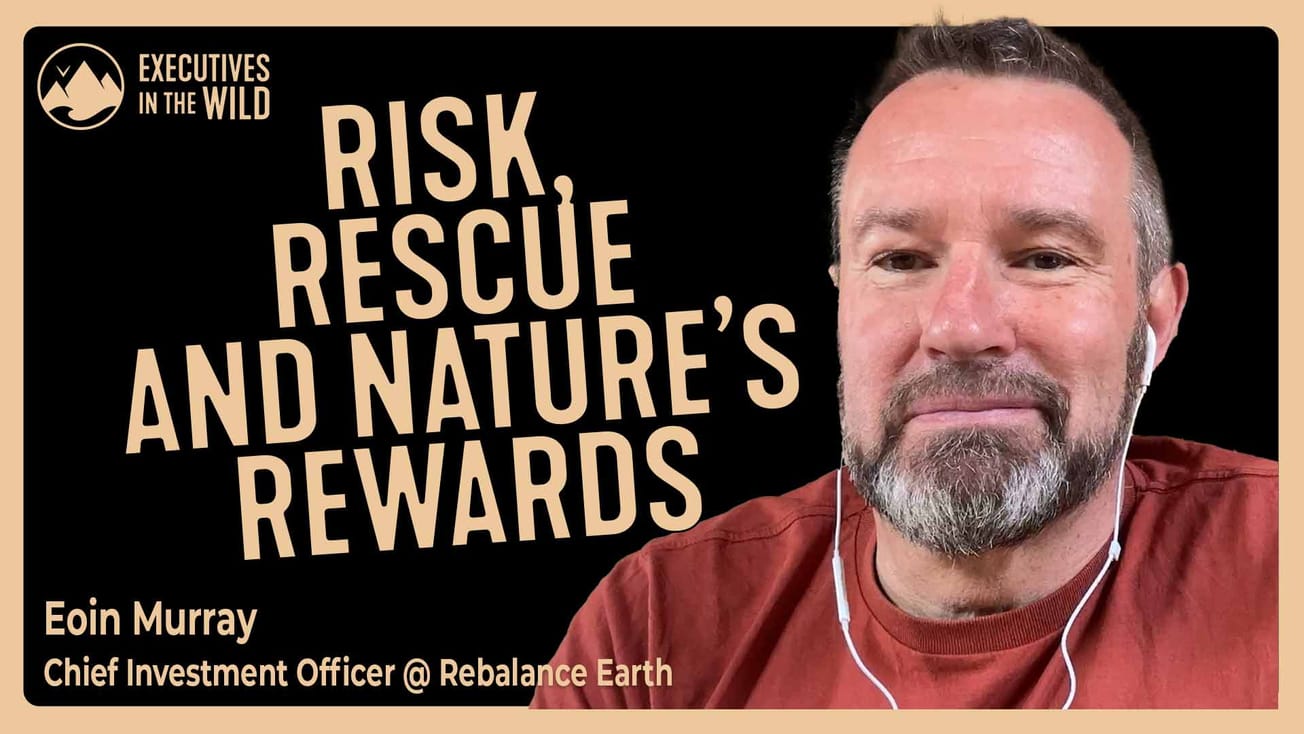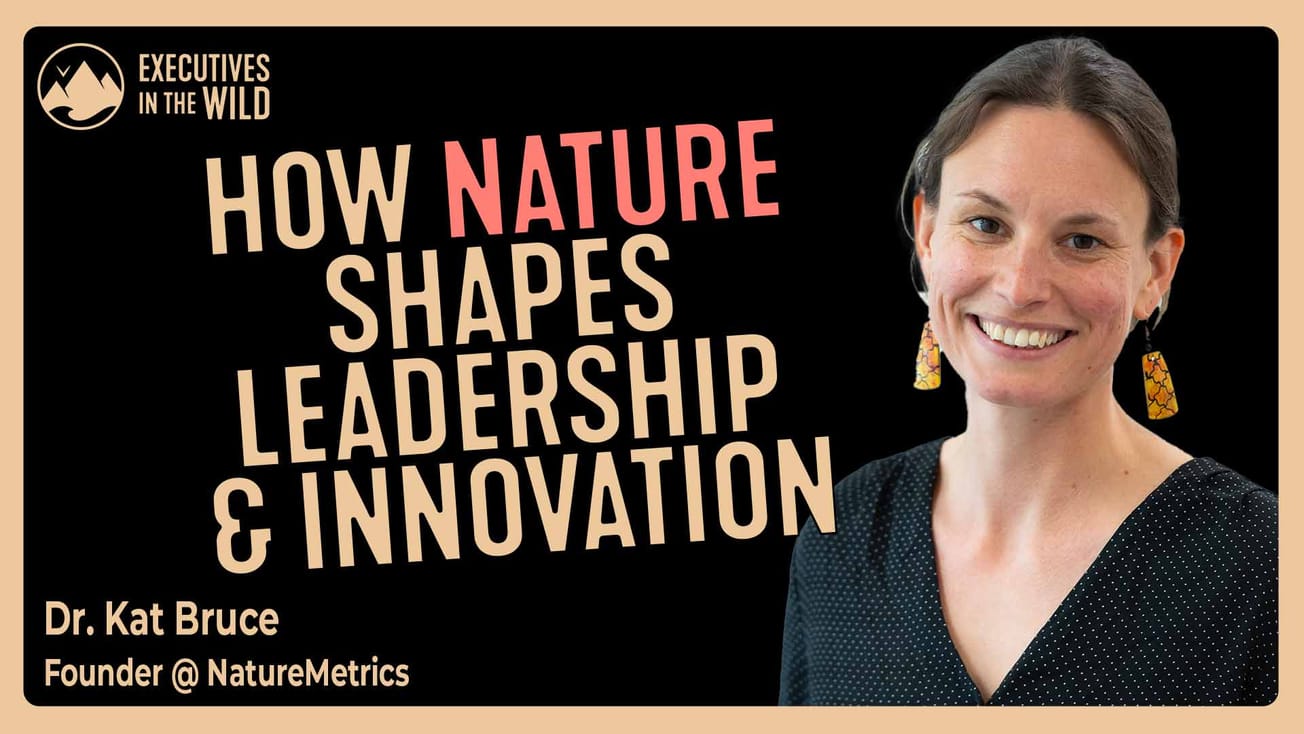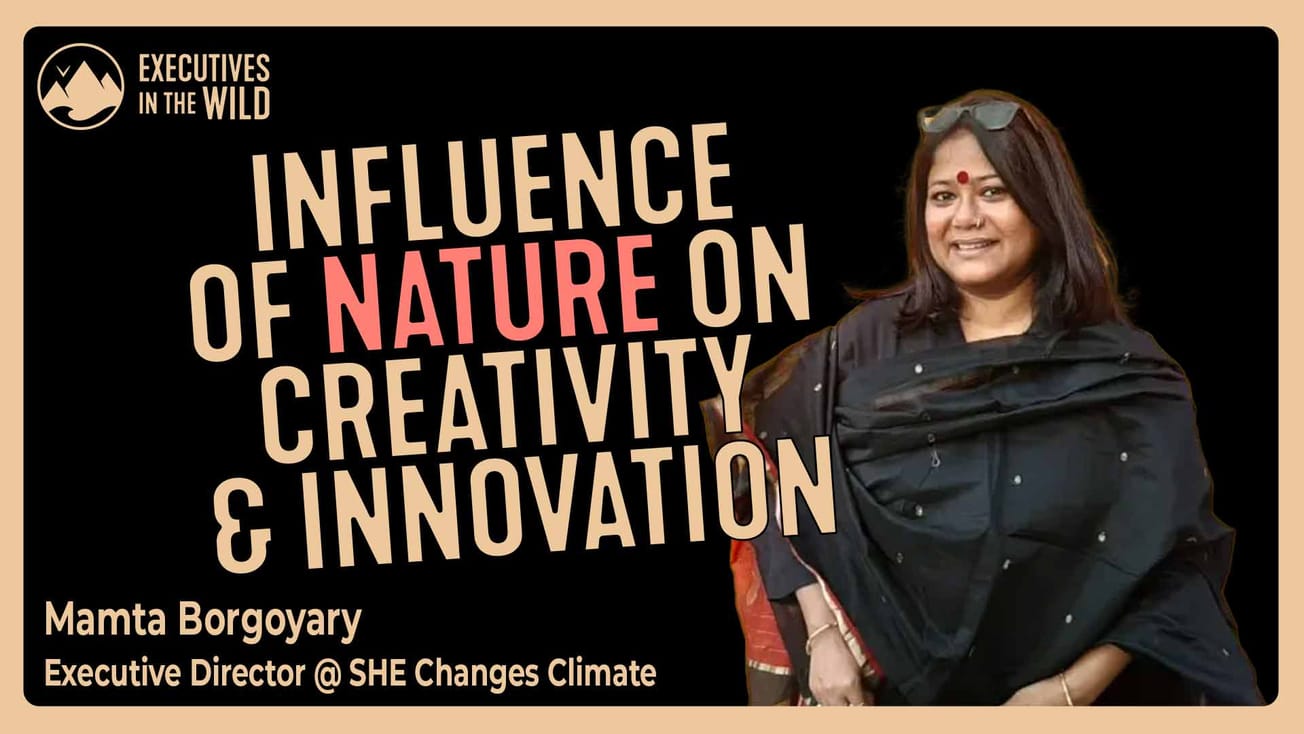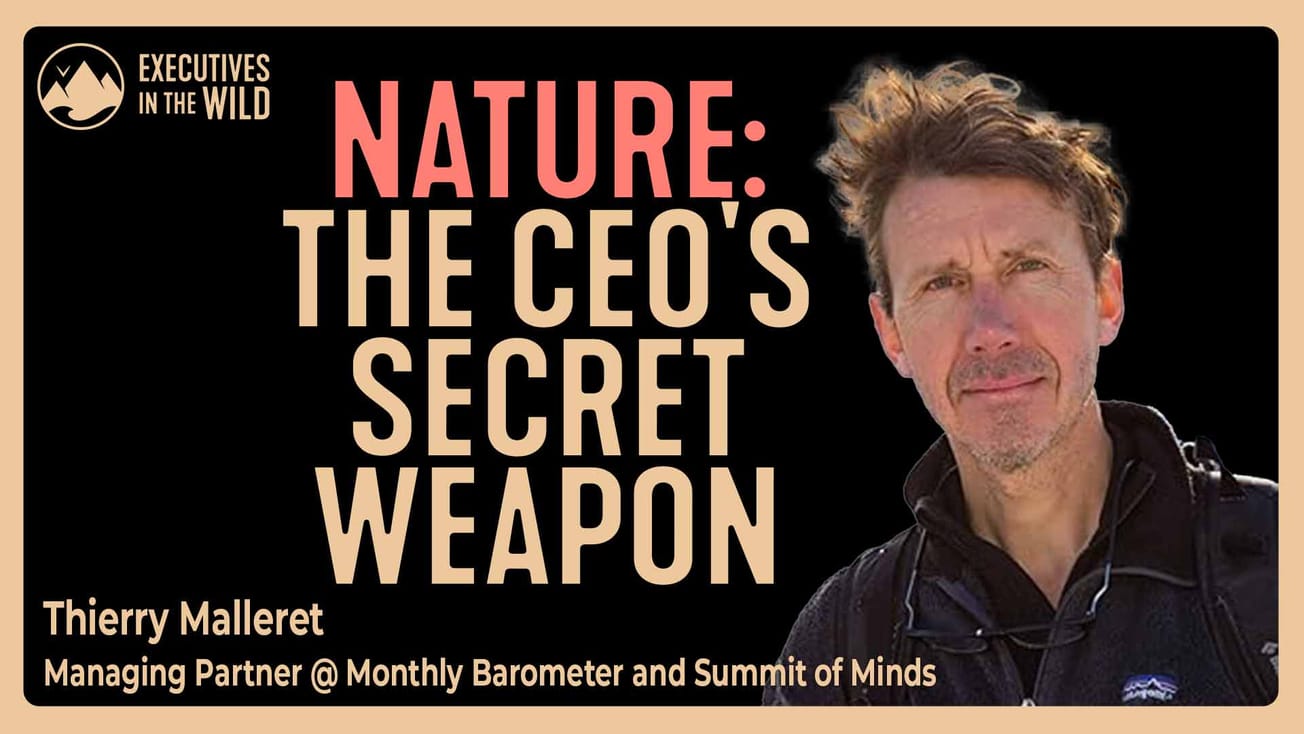In this Better Worlds’ episode of Executives in the Wild, Salesforce’s Tim Christophersen and hosts Jessica Smith and Diana Denke offer advice that may help repair our collective relationship with Nature and restore balance. They may not be Dear Abby, but they are on the right track. Join the conversation.
Top Takeaways: A To Do List to Restore our Relationship with Nature
- Recognize Nature everywhere you go. Nature can live without you, but you can't live without Nature.
"We always have to remember that if we are part of nature, we also bring nature with us everywhere. And we depend on Nature wherever we are. Even if you're in the middle of a multi-million people city."
- Spend more time together! Connect with Nature every chance you get. Observe Nature closely, even in urban environments. Nature shows us how to work in harmony.
- Nature inspires systems thinking in all we do. Nature is interconnected, and we should approach problems with a holistic perspective.
"Nature always 'thinks' in systems, never in linear - one problem, one solution, one fix."
- Imagine what healthy, biodiverse landscapes and restored ecosystems could look like. Get creative with your imagination and use it to design better worlds!
"The first thing we need is imagination to know what a million hectares of landscape restoration would look like, because we have very few examples so far globally of that size."
- Farmers and Indigenous Peoples have a deeper understanding of local ecosystems. Value and honor traditional ecological knowledge. Support the transfer of Nature wisdom to younger generations. Take a field trip to a farm, regenerative community or reclaimed tribal lands. Learn more about how to treat Nature from those closest to her!
- Embrace the natural rhythms in our lives and work. Make the effort to align more with natural cycles. Even in daily business contexts, measure time in lunar cycles rather than in 12 human-created calendar months.
- Give Nature a seat at the table. Putting the "voice of nature on boards" to change the dialogue and the decisions being made.
"Earth Law Center works to put the voice of nature on corporate boards and governance. They have a legal framework on how you can do that. They have incredible stories recounting how ot changes the dialogue all together, in terms of what decisions are being made because...What is the type of decision that you make when you have, the ocean on the board and you have to take that perspective into account?"
- Price the value of nature. Support natural capital accounting initiatives that recognize the importance of proper accounting for the value of nature's "goods and services" that are often taken for granted.
"That is that is absolutely key. It is important to shift our mindset towards seeing nature as a relationship that goes both ways. And that means we receive a lot of benefits from nature. We have to give back that reciprocity."
- Be aware of ecological tipping points. Use the “precautionary principle” in our approach to nature when an action or policy might cause severe or irreversible harm to the environment, and take preventative action to protect ecosystems before reaching potential tipping points, rather than waiting for full scientific certainty about risks.
"Nature doesn't change in linear ways either. It changes in very sudden, very dramatic shifts of ecosystem condition from one stable equilibrium state to another. So when people talk about ecological tipping points, you see that in, small examples. But there are, of course, big tipping points that we're all worried about, like the Amazon forest, the Amazon biome flipping to a savanna woodland state. And that could happen relatively quickly and at a point that is very difficult to predict. So we have to use also the precautionary principle in our approach and learn that from nature, because these changes can happen very suddenly"
- Recognize the resilience of Nature. Nature can bounce back when given the opportunity. It is inspiring to say the least.
It takes an intentional act by humans to give nature that opportunity to bounce back. For many people I speak with, the end goal is ecological restoration. So they want Nature to be as it was. There's no such thing as Nature as it was. Nature is in constant flux, so we have to define what we want. And since we're part of Nature, that has to mean we want landscapes that have high biodiversity, but also a high functionality for our needs."
These insights are just a glimpse into complicated relationships with Nature. Listen to the full podcast with Tim, Diana and Jessica at Better Worlds on Spotify or Apple or watch on YouTube to explore more.













